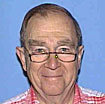Commentary on Psalm 29
Psalm 29 is a call to worship, not only by the assembled congregation in the Jerusalem Temple, but also by the angels in God’s heavenly court.
In all likelihood, the context of this powerful piece was someone experiencing the lightning, thunder, and wind of a storm coming in from the Mediterranean Sea. The Psalm found its way into the Psalter, not to provide a fitting song for the choir on a rainy day. More likely, it proved appropriate for a festival where Yahweh’s Kingship (verse 10) or glory (verse 9) was celebrated.
When and by whom was the Psalm written? Verse 1 suggests it belongs to a collection for the king. Few scholars think that David is the author, though it may well be an early piece. More likely, it was written by a worship leader at an Israelite worship center.
Several rare words are traceable to Canaanite sources. Some even think that a non-Israelite song was rewritten to claim that Yahweh is the God who sends storms, rather than some storm god in a heathen pantheon.
There are various types of Psalms in the Psalter (praise, thanksgiving, lament, and wisdom to name a few). Psalm 29 fits the ‘praise’ category, though its structure and content are unique. The opening two verses serve as an Introit or call to worship. Three imperatives of the word ‘to give’ or ‘to render,’ plus one of the verb ‘to bow down,’ set the stage for the rest of the poem. Three strophes (verses 2-4, 5-7, 8-9) follow, in which the author’s experience and Yahweh’s self-disclosure or activity are described. Eight occurrences of the noun ‘voice’ secure the content under Yahweh’s control. Not all translations agree as to the areas of Yahweh’s activity, but that does not alter their intent. Finally, a postlude (verses 10-11) sets the stormy content of the center section to rest in the peaceful conclusion and future situation of God and His people, and the heavenly court as well.
Now for a closer look at the sections” Verses 1-2 call everyone to worship. Did Temple worshippers bow down (verse 2) as Muslims now do? Yahweh is the God of glory, power, and holiness. There are ample reasons to worship. Nothing is left over for other gods. Whatever is seen or experienced as good in history, nature, music, or architecture, is a reflection and gift of God. Thus, the name of Yahweh became too sacred even to pronounce.
The body of the Psalm divides into three parts−verses 3-4 preview the coming storm as if it is still over the sea. But, the sounds and sights are not just natural phenomena. They disclose Yahweh’s glory and power. Yahweh’s voice is heard, in addition to waves crashing on the shore and thunder. It is doubtful that the pre-scientific ages actually thought that the LORD’S vocal chords enunciated words which a prophet could interpret.
Verses 5-7 see the storm come inland and wreak havoc in the mountain forests. Now, it is the falling timbers as well as the thunder which are Yahweh’s voice. The mountains, including the highest, Mount Hermon, seem to jump and skip. Lightning sets forest-fires ablaze. But it is Yahweh, not just nature, who is at work.
Verses 8-9 describe the movement of the storm further inland, into arid lands which usually are anxious to soak up downpours. Are people in their towns and tents afraid? The poet still hears God’s voice in the powerful display. Nature is upset and suffers, but no one cries for justice or mercy. Later, those on a festival day, who earlier feared for their lives, worship Yahweh with but one appropriate response: Glory to God!
Lastly the postlude sets the entire universe at rest. God sits enthroned above the waters and above the firmament. He is King of Kings and Lord of Lords. He who displayed his power and glory, which so moved heaven and earth, now shares his strength with Israel and blesses them with shalom.
How many will hear a sermon on the Old Testament lesson for the day? It is rarely the case in most of our churches, but this psalm is a powerful word. No, it is not like Jesus, an apostle, or a prophet speaking a word from God. It is some unknown poet followed by a choir director or worship leader calling every living being in heaven and earth to worship the Creator. We may have confessed Him in the creed. We may have lived through a tornado, as two families of my children have. Every time a dark cloud appears on the horizon, we may relive a powerful storm we experienced in the past. But did God speak to us in it?
We modern folks are so secularized that we may not even have prayed when the storm struck. If we go to church, we expect God to speak to us in the texts for the day or the sermon. We may admire God’s handiwork in a sunset or a nature scene, but mostly we do not reflect on God’s work in nature or history. Most people believe that history is humanly determined, and nature evolved without divine interference or creativity. Yet, we know far more about the extent of the universe than any people did until recently. The power released in an exploding supernova, or every second by the billions of stars in the Milky Way should get our attention. Let’s cry, Glory!
How do we Christians interpret Psalm 29 differently than Jewish people? We too are God’s people, but chosen and elect in Jesus Christ, not covenanted because of Sinai. God’s glory is revealed to us in the face of Jesus Christ. What we know of our pre-Christian ancestral religion probably discloses a storm god, a war god, etc. No wonder our ancestors long ago were converted. But, secularism has taken hold of us and we do not hear God’s voice in nature anymore.

January 9, 2011